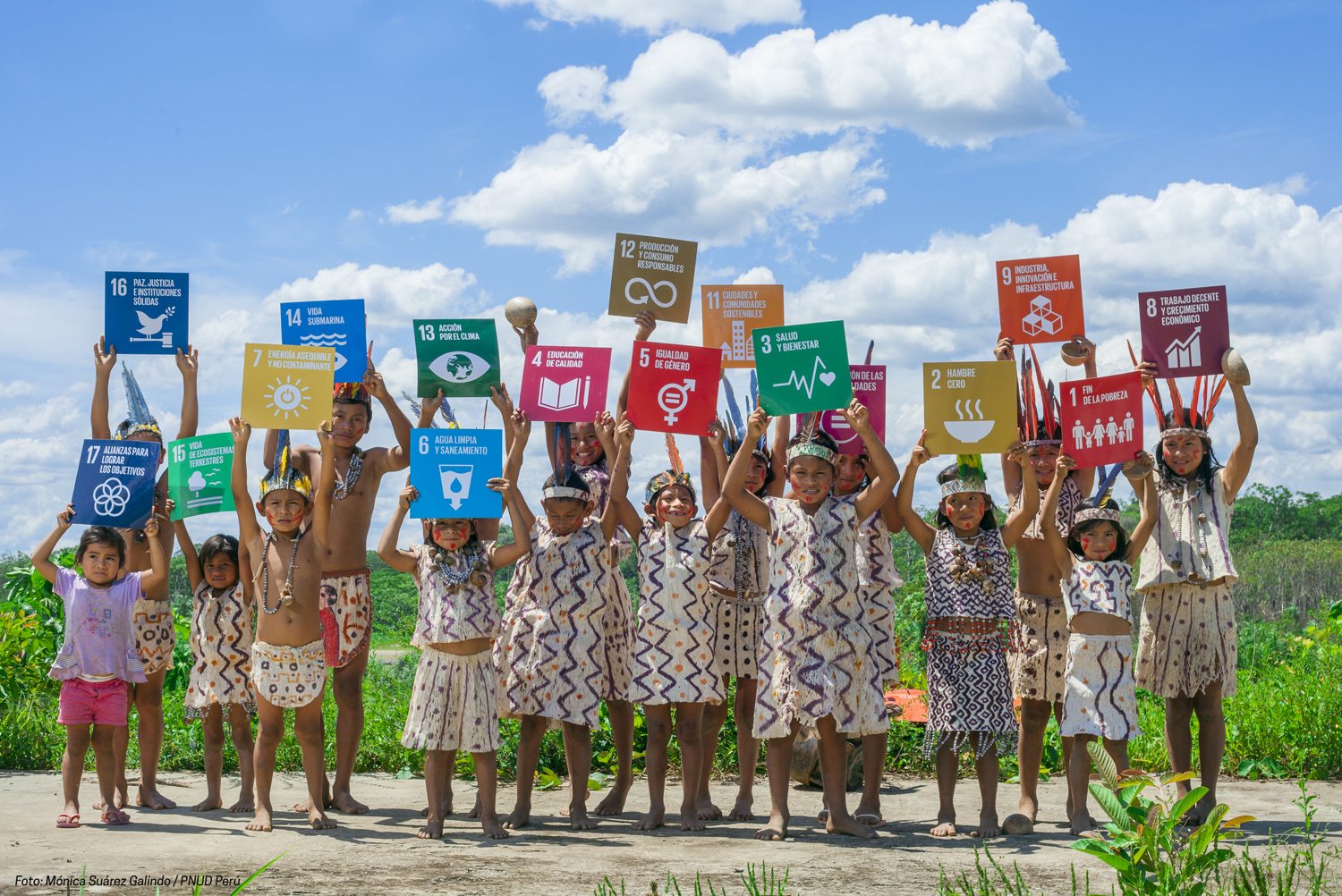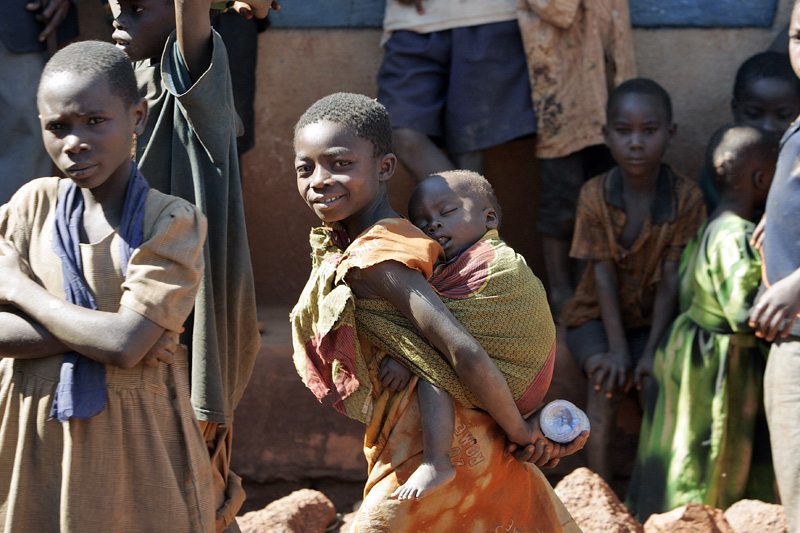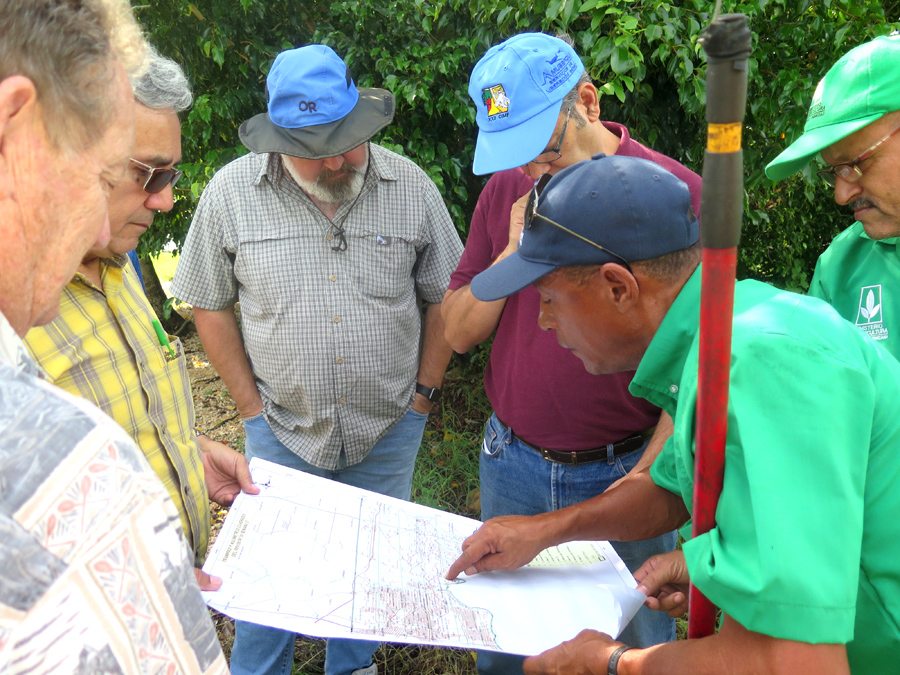The 17 Sustainable Development Goals (SDGs)—a core feature of the 2030 Agenda for Sustainable Development—focus on the three interconnected elements of sustainable development: economic growth, social inclusion and environmental protection.
As every country strives to achieve the SDGs, we need to transform the way we do things. The world needs a new approach to address the global challenges we face, including those related to poverty, inequality, environmental degradation, prosperity, and peace and justice.
Governments, businesses and civil society are taking bold actions to demonstrate their strong commitment to achieving the Goals and ensuring no one is left behind.
*****
Dominican Republic
In the Dominican Republic, since March 2015, the International Atomic Energy Agency (IAEA) and the Food and Agriculture Organization of the United Nations (FAO) have been assisting the Ministry of Agriculture and its partners in implementing an integrated pest eradication campaign against Mediterranean fruit flies, with the support of the Animal Plant Health Inspection Service of the USDA (USDA-APHIS), the International Regional Organization for Plant and Animal Health (OIRSA) and the Inter-American Institute for Cooperation on Agriculture (IICA).
Sudan
In Sudan, supported by the International Atomic Energy Agency (IAEA) in cooperation with the Food and Agriculture Organization (FAO), a Drip Irrigation Project, which applies nuclear science and techniques, has been ongoing since 2015 in Kassala (eastern Sudan) to make the most of limited water supplies and to optimize fertilizer use in the area. Through the project, scientists from the Sudan Agricultural Research Cooperation (ARC) have been trained by experts from the Joint FAO/IAEA Division. The scientists learned how to use nuclear and isotopic techniques to optimize soil, water, and fertilizer use for growing crops using the “drip irrigation” system. As a result of the training, the drip irrigation system has successfully led to the reduction of water use by up to 70 per cent, while increasing food yields by more than 40 per cent in the area.
Switzerland
In Switzerland, the United Nations Office at Geneva (UNOG) launched the #YouNeedToKnow campaign, which aims to raise awareness about the importance of the SDGs. It is an initiative of the Perception Change Project, led by the Office of the DirectorGeneral at UNOG, in partnership with Dufry, a global retailer with shops in over sixty countries and a combined yearly traffic in their shops of 2.3 billion people.
Samoa
Communal culture in Samoa builds on the role of warriors. Today new types of warriors, young women and men are unearthing culinary traditions and incorporating more sustainable techniques in food production: they are better known as Organic Warriors. Developed by Women in Business Development Inc (WIBDI) as part of the SDG Fund joint programme in collaboration with UNDP, the “Organic Warriors Academy” seeks to equip unemployed youth with the knowledge and skills to cultivate their land into a profitable business.
Philippines
Although overall access to improved water source has significantly increased to 96 percent in 2013 in the Philippines, around 56.9 percent of households still do not treat their water (Ibid) and from among those who treat their water, only 35.2 per cent use appropriate treatment methods. The SDG Fund Joint Programme on PROWATER— an initiative of UNDP, UNICEF, WHO, the Government of the Philippines and other partners—seeks to empower citizens and communities by promoting the importance of sustainable safe water and sanitation services.
Tanzania
To reach people living below the food poverty line, the Government of Tanzania started a massive overhaul of its current national programme, the Tanzania Productive Social Safety Nets (PSSN) in 2013. The programme allows pregnant woman and children under five of poor households to get health services for, as well access food and income. It has also resulted in increased school enrolment and attendance. The UN is supporting the initiative through a SDG Fund joint programme with UNDP, ILO, UNICEF and UNFPA.
*****
During the High-Level Political Forum on Sustainable Development, 44 countries, both developed and developing countries, are presenting their Voluntary National Reviews or plans to achieve the Sustainable Development Goals (SDGs) at the 3-day ministerial meeting from 17-19 July.
The 44 countries are: Afghanistan, Argentina, Azerbaijan, Bangladesh, Belarus, Belgium, Belize, Benin, Botswana, Brazil, Chile, Costa Rica, Cyprus, Czech Republic, Denmark, El Salvador, Ethiopia, Guatemala, Honduras, India, Indonesia, Iran, Italy, Japan, Jordan, Kenya, Luxembourg, Malaysia, Maldives, Monaco, Nepal, Netherlands, Nigeria, Panama, Peru, Portugal, Qatar, Slovenia, Sweden, Tajikistan, Thailand, Togo, Uruguay and Zimbabwe.
The programme and summaries of each country’s actions and plans are available online at: https://sustainabledevelopment.un.org/hlpf
- Nuclear science helps Sudanese women turn dry lands into vegetable fields © Nicole Jawerth / IAEA
- Nuclear science helps women farmers in Sudan leave poverty behind. © Nicole Jawerth/IAFA
- Children play in streets of Village in Tanzania © UN Photo/Evan Schneider
- UNICEF Provides Safe Drinking Water in Tanzan © UN Photo/Evan Schneider
- International entomologists work with the Ministry of Agriculture’s trap reviewers in Punta Cana. © L. Gil/IAEA






